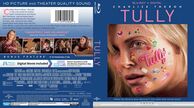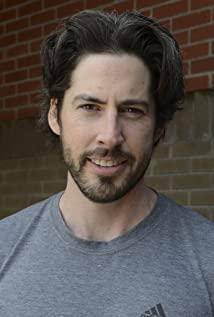As a mother of a second child, I feel that time is not enough. I am on maternity leave at home, and my daily routine is basically as follows:
Get up at 7:00 (no matter what time you went to bed last night, Xiaoqi will be on time for the morning call)
7:30-9:00 Coax Xiaobao to sleep, breastfeed, change tablets, and have breakfast
9:00-13:00 Sleeping, breastfeeding, changing tablets, bathing Xiaobao, own lunch
13:00-15:00 Sleeping (including self), breastfeeding, changing tablets, washing pp
15:30-17:00 Pick up Xiaoqi from school and prepare for work before going out
17:30-20:00 Sleeping, breastfeeding, film changing, bathing, own dinner, playing with Xiaoqi
From 20:00 to 7:00 the next day, sleep coaxing, breastfeeding, and changing films are repeated every to three hours. If Xiaobao is in a good mood, he can accompany Xiaoqi to read and sleep.
In this way, the singles cycle day after day. Time is cut into pieces. Shopping for dinner? nonexistent. Reading books and chasing dramas? You have to press the pause button countless times.
If you ask me what I want most now, it must be returning to the confinement center. Give Xiaoqi to grandma and father, give Xiaobao to the nurse sister, and give yourself to Deep Sleep.
I believe that every mother has a deep understanding of the days of fighting with the baby to eat, drink, sleep, and sleep every day. Marlowe, the heroine in the movie "Tully", interprets this "mother tired" to the extreme. Female audiences who have watched the movie can be divided into two groups: one is women who have given birth, and they will keep nodding to say yes, raising a baby is like this escalating the fatigue battle of fighting monsters; Soul torture: Am I really ready to be a mother?
How does this film, known as the best contraceptive advertisement of the year in the United States, achieve its own contraceptive effect? All because the director set up a clever reversal, which made the audience suddenly realize at the end, and then pondered and horrified.
The following contains spoilers.
In the film, Marlow is about forty years old and has an eight-year-old daughter, a four-year-old son who is considered a problem child by the school, and an unwanted pregnancy with three children. The story revolves around the arrival of the third child.
Marlowe's husband is a mid-level company employee who travels frequently to add value to his work at a time when his career is on the rise. The financial situation of the family is average. The three children are fully in Marlow's care.
Marlowe suffered from postpartum depression during her second child. To avoid the same problem again, Marlowe's wealthy brother offers to hire a night-time nanny for her. Marlowe refused, citing concerns about handing over the child to a stranger.
So Marlowe independently supported the responsibility of taking care of the three children. The film reflects Marlowe's exhaustion through quick transitions of feeding, changing diapers, cooking, and turning the lights on and off.
Two of them touched me quite a bit: Marlowe sat at the dining table with no appetite in her bra, bare waist, and Marlowe slumped in a chair with both breasts pumping an electric breast pump. superior. These two scenarios are all too familiar. As a breastfeeding mother, sometimes I eat to produce milk and produce milk to raise my baby. What are you? "It's been a long time since I've been asked about my life," Marlowe said.
Exhausted, Marlowe finally called the night-sitter given by his brother. And the arrival of the nanny Tully did indeed save Marlowe.
Tully, a young, energetic girl with a slender waist, is witty, patient, and has a similar temperament to Marlowe, who successfully persuades Marlowe to put the baby in her care.
Marlowe could finally get a good night's sleep. In addition to taking care of the baby, the caring Tully also helps with the cleaning, bakes cupcakes for his naughty son, accompanies Marlowe to the midnight show Call of Duty, and even puts on Marlowe's uniform to please her husband Drew.
With Tully's help, Marlowe is reborn as she re-makes up, runs, accepts her son's character flaws, goes out at night, and drinks. Marlowe is radiant, confident and passionate about life.
Is it really that simple? Will there really be a snail girl Tully to save her mother from a tired life?
The answer is no.
Tully never appeared in reality. Tully was the product of Marlow's schizophrenia.
That said, Tully is another personality of Marlowe. Marlowe does all the babysitting, cleaning, baking cakes, and pleasing her husband that Tully does at night. All this was only revealed when Marlowe was seriously deprived of sleep, leading to a car accident and being sent to the hospital.
However, the director never tried to hide the fact that Tully was a split personality. For example, only Marlowe and the baby have seen Tully in the film; Marlowe dreamed that his son had two avatars; Tully put on makeup, but Marlowe did not, but the daughter asked her mother why she started wearing makeup; Tully and Marlowe's hobbies There is a high degree of overlap, even the address they used to live in, and they all have a roommate who quarrels; Tully seduces Drew in uniform, but Drew accepts her in front of Marlow; Marlow's maiden surname is Tully and so on.
Therefore, it is not the audience who finally finds out that Marlow is schizophrenic, but her husband Drew.
Drew represents a large group of typical husbands and dads: working hard but not earning much, loving his wife but talking about it, and taking part in parenting with only occasional hugs. According to Marlowe, Drew and her would cook lunch with her when they were at home, eat together, then go upstairs to play games with headphones on, and then pass out. I don't know what's going on downstairs.
So when Marlowe told him about the night babysitter coming downstairs, he believed it, even though he had never met the babysitter.
When Marlowe was out in a car accident and was admitted to the hospital, he also complained to the doctor that "I don't know why she would go out, because then there would be no one to take care of the child." The doctor asked back, "Aren't you at home?" He was speechless.
Men like Drew can't be called evil, and he did not commit acts of derailment or domestic violence that directly hurt the family. But it can never be called good. Marlowe's split personality is precisely because he is not satisfied in life that he is satisfied by the virtual split of himself. If Drew could help Marlowe in time, what would happen.
Tully is Marlowe's split personality, which makes the audience feel at ease. Like Billy in "24 Billy", in order to protect the main personality, he constantly splits into sub-personalities with various skills, such as those who understand fighting, those who can negotiate, those who can escape, those who specialize in suffering, and each has its own strengths. . Marlowe's most urgent need right now was someone to help her take care of the children, so Tully came. The next time Marlowe needs someone to help with his child's homework, he might turn into Lisa, an MIT top student.
In the film, Tully and Marlowe talk about a boat that keeps changing planks until all the planks are replaced, and it's still not the original boat. Marlowe said no. This also implies that Marlowe does not want the main personality to be replaced by the sub-personality. So Tully saying goodbye to Marlowe also means that the subpersonality will be temporarily hidden. It's a shift for the better, but unstable. Billy's once-fused personalities split again after being stimulated.
Life is not a node, but a long journey.
(Marlow is played by the hot Charlize Theron, who deliberately gained 46 pounds in order to play this role.)
During the viewing process, I kept thinking, what is the main purpose of this film?
Parenting is difficult? No, it's the proverbial shallow level.
marital relationship? Not quite, though seemingly Drew's neglect led Marlowe toward a split.
self-reconciliation? Yes, this is the important factor. In the film, Marlowe needs to reconcile himself on two levels.
Looking back at the beginning, why did Marlowe refuse the night babysitter arranged by his brother? In addition to financial reasons, she also takes care of Drew's face (Drew always thinks his brother doesn't like him). In addition, she has been trying to play the perfect mother, she does not worry about handing over her children to strangers, and she seems unable to take care of three children. Marlowe needs to reconcile with the ideal mother.
On the other hand, it is to reconcile with the self who used to be full of dreams. Tully asks Marlow what his dreams are. Marlowe shook her head: "If I have a wish that doesn't come true, I can do it, but really just sit here and feel sorry for myself." Her status quo is empty.
Marlowe was not born empty. She went to college and worked as an HR for a company. She shared a room with friends to chase Manhattan. In her twenties, she must have dreamed of a magnificent future, but she didn't expect that in her 30s and 40s, she was confined to the kitchen and children's shit. She chose the ordinary, but she has not yet reconciled with the ordinary self.
In fact, with Tully's retirement, Marlowe has achieved self-conciliation on both levels.
Tully's words were also her self-seeking answers: "You have a warm bed, three lovely children, a creaky staircase, a faucet with the smallest water in the world when you take a shower, and that's home. You Everything that is boring is what you achieve in life."
Her dream in life is to create this ordinary home.
At the end of the film, Drew took the initiative to participate in the children's games and took the initiative to stand beside Marlowe to do housework together.
I see it as a utopian happy ending.
For Marlowe, it's about benevolence. Much better than most reality outside the film.
View more about Tully reviews











